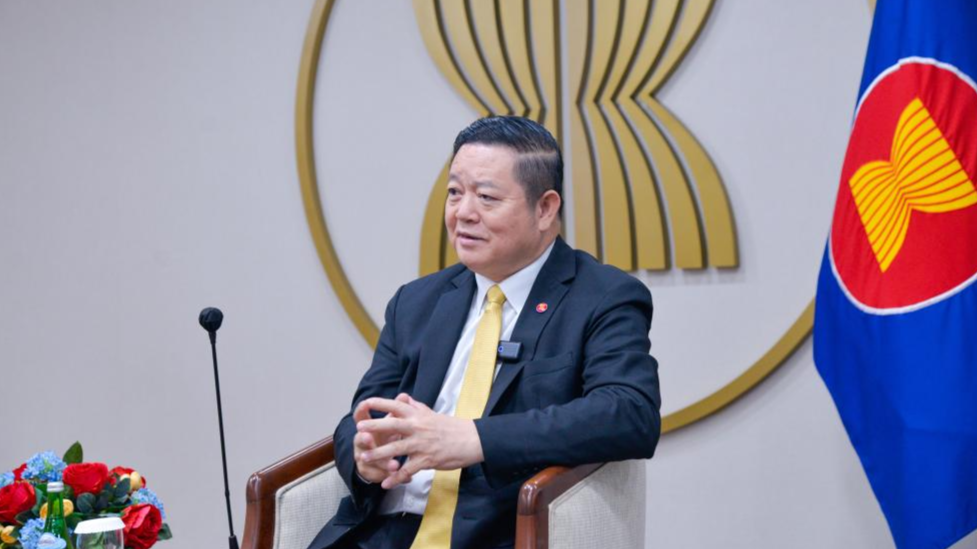
JAKARTA - The Association of Southeast Asian Nations (ASEAN) is committed to deepening its comprehensive strategic partnership with China and upholds multilateralism, the bloc's Secretary-General Kao Kim Hourn has said.
Since elevating bilateral ties to a comprehensive strategic partnership in 2021, ASEAN and China have seen their trade surge, cementing their status as each other's largest trading partners, Kao told Xinhua in an interview.
He depicted the Version 3.0 ASEAN-China Free Trade Area (FTA) -- with negotiations substantially concluded -- as a pivotal driver for their cooperation in digital economy, green industries, blue economy and streamlined customs protocols.
"We expect the ASEAN-China FTA 3.0. will be completed within this year. And that will bring enormous economic potential to both sides," said Kao.
He said that ASEAN is working with China to enhance cooperation on connectivity, tourism, agriculture and people-to-people exchanges.
"We will bring more tariffs down to zero in many cases and then expand to all the areas. So that would be good to make sure that ASEAN is on track to truly become a single market in the future," Kao said.
Kao also expressed ASEAN's resolve to uphold free trade amid rising global protectionism.
There is a growing trend in the global economy -- the rise of tariff barriers, protectionism and decoupling, he said. "We should not join those who are moving in that direction. We have to continue to do what we have been doing. And that is to keep the global economic trading system open, free and rule-based."
ALSO READ: China-ASEAN media, think tank forum urges efforts to tell success stories
ASEAN's multilateral ethos aligns closely with the China-proposed Global Development Initiative, Global Security Initiative and Global Civilization Initiative, Kao said.
"These global initiatives very much would be a contribution to the promotion of global peace and prosperity," said Kao.
As ASEAN prepares to adopt the ASEAN Community Vision 2045, Kao calls for an alignment of the Belt and Road Initiative with ASEAN's new strategy to continue their cooperation on energy, power grids and transportation networks.
Kao deems cooperation on renewable energy and electric vehicles critical to ASEAN's sustainability goals, calling for joint innovation in waste-to-energy solutions and recycling technologies. Meanwhile, ASEAN's digital push, including building a binding regional framework, opens doors for collaboration with China in e-commerce and smart infrastructure, he said.
He also highlighted the importance of using the existing mechanisms between ASEAN and China to tackle online scams and other transnational crimes.
2025 marks the 70th anniversary of the Bandung Conference. "We have to prioritize development and prosperity. And of course, we resolve our differences by peaceful means, and we renounce the use of force," Kao said. "So clearly, this is a spirit that derived from the Bandung declaration," he added.


